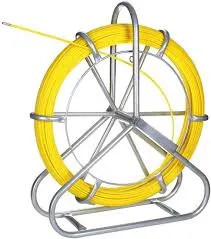
-
 Afrikaans
Afrikaans -
 Albanian
Albanian -
 Amharic
Amharic -
 Arabic
Arabic -
 Armenian
Armenian -
 Azerbaijani
Azerbaijani -
 Basque
Basque -
 Belarusian
Belarusian -
 Bengali
Bengali -
 Bosnian
Bosnian -
 Bulgarian
Bulgarian -
 Catalan
Catalan -
 Cebuano
Cebuano -
 Corsican
Corsican -
 Croatian
Croatian -
 Czech
Czech -
 Danish
Danish -
 Dutch
Dutch -
 English
English -
 Esperanto
Esperanto -
 Estonian
Estonian -
 Finnish
Finnish -
 French
French -
 Frisian
Frisian -
 Galician
Galician -
 Georgian
Georgian -
 German
German -
 Greek
Greek -
 Gujarati
Gujarati -
 Haitian Creole
Haitian Creole -
 hausa
hausa -
 hawaiian
hawaiian -
 Hebrew
Hebrew -
 Hindi
Hindi -
 Miao
Miao -
 Hungarian
Hungarian -
 Icelandic
Icelandic -
 igbo
igbo -
 Indonesian
Indonesian -
 irish
irish -
 Italian
Italian -
 Japanese
Japanese -
 Javanese
Javanese -
 Kannada
Kannada -
 kazakh
kazakh -
 Khmer
Khmer -
 Rwandese
Rwandese -
 Korean
Korean -
 Kurdish
Kurdish -
 Kyrgyz
Kyrgyz -
 Lao
Lao -
 Latin
Latin -
 Latvian
Latvian -
 Lithuanian
Lithuanian -
 Luxembourgish
Luxembourgish -
 Macedonian
Macedonian -
 Malgashi
Malgashi -
 Malay
Malay -
 Malayalam
Malayalam -
 Maltese
Maltese -
 Maori
Maori -
 Marathi
Marathi -
 Mongolian
Mongolian -
 Myanmar
Myanmar -
 Nepali
Nepali -
 Norwegian
Norwegian -
 Norwegian
Norwegian -
 Occitan
Occitan -
 Pashto
Pashto -
 Persian
Persian -
 Polish
Polish -
 Portuguese
Portuguese -
 Punjabi
Punjabi -
 Romanian
Romanian -
 Russian
Russian -
 Samoan
Samoan -
 Scottish Gaelic
Scottish Gaelic -
 Serbian
Serbian -
 Sesotho
Sesotho -
 Shona
Shona -
 Sindhi
Sindhi -
 Sinhala
Sinhala -
 Slovak
Slovak -
 Slovenian
Slovenian -
 Somali
Somali -
 Spanish
Spanish -
 Sundanese
Sundanese -
 Swahili
Swahili -
 Swedish
Swedish -
 Tagalog
Tagalog -
 Tajik
Tajik -
 Tamil
Tamil -
 Tatar
Tatar -
 Telugu
Telugu -
 Thai
Thai -
 Turkish
Turkish -
 Turkmen
Turkmen -
 Ukrainian
Ukrainian -
 Urdu
Urdu -
 Uighur
Uighur -
 Uzbek
Uzbek -
 Vietnamese
Vietnamese -
 Welsh
Welsh -
 Bantu
Bantu -
 Yiddish
Yiddish -
 Yoruba
Yoruba -
 Zulu
Zulu


Aug . 14, 2024 02:11 Back to list
Exploring the Benefits and Uses of Fiberglass Tent Poles for Outdoor Adventures and Camping
Fiberglass Tent Poles The Ideal Choice for Outdoor Enthusiasts
When it comes to camping and outdoor adventures, one of the most critical components of a tent is its pole structure. Tent poles provide the necessary support to keep your shelter upright and sturdy against the elements. Among the various materials available for tent poles, fiberglass has emerged as a preferred choice for many campers. This article explores the advantages of fiberglass tent poles, their construction, and why they are favored by outdoor enthusiasts.
What Are Fiberglass Tent Poles?
Fiberglass tent poles are made from a composite material composed of glass fibers embedded in a resin matrix. This unique combination offers several benefits, particularly in terms of weight, strength, and flexibility. Fiberglass poles are typically hollow and come in various diameters and lengths, allowing tent manufacturers to create different pole configurations to suit specific tent designs.
Advantages of Fiberglass Tent Poles
1. Lightweight and Portable One of the standout characteristics of fiberglass tent poles is their lightweight nature. For outdoor adventurers who prioritize mobility, every ounce counts. Fiberglass poles provide a solid structure without adding unnecessary weight to your pack.
2. Flexibility and Durability Fiberglass poles possess an inherent flexibility that allows them to bend under pressure without breaking. This resilience makes them particularly effective in windy conditions or when faced with abrupt weather changes. The poles can absorb shock, leading to a reduced risk of breakage compared to more rigid materials like aluminum.
tent poles fiberglass

3. Cost-Effective Option When shopping for camping gear, budget considerations are always on the table. Fiberglass tent poles are typically more affordable than their aluminum counterparts. They offer a good balance of quality and price, making them an attractive option for novice campers or those who don’t want to invest heavily in gear.
4. Corrosion-Resistant Unlike metal poles, fiberglass does not corrode or rust over time. This resistance to the elements makes fiberglass poles a smart choice, especially for campers who frequently face diverse weather conditions. With proper care, these poles can last for many camping seasons.
5. Easy Repair If a fiberglass pole does break, it can often be repaired easily with some basic tools and materials, such as a fiberglass repair kit. Campers can quickly mend a pole rather than facing the hassle of finding a replacement, which can be especially concerning when in a remote location.
Considerations When Choosing Fiberglass Poles
While fiberglass tent poles have many advantages, they’re not without their drawbacks. They can be less durable than aluminum in extreme conditions where rigidity is essential. In situations involving extreme snow loads or heavy rain, some campers may prefer the sturdiness that aluminum poles provide. Additionally, fiberglass poles can be more susceptible to UV degradation over time when exposed to relentless sunlight.
Conclusion
For campers and outdoor enthusiasts seeking a balance of weight, flexibility, and cost, fiberglass tent poles present an excellent choice. Their lightweight nature, combined with impressive durability and resilience, makes them an ideal option for various camping scenarios. While they might not be suited for every extreme condition, they offer a reliable solution for hobbyists and casual campers alike. Ultimately, when selecting a tent, considering the type of pole can significantly enhance your outdoor experience, allowing you to focus on what truly matters—enjoying nature.
Latest news
Understanding Earth Wiring and Grounding: Essential Components for Electrical Safety
NewsAug.15,2025
The Ultimate Guide to Cable Pulling Tools and Equipment for Efficient Installations
NewsAug.15,2025
Streamline Your Projects with Advanced Cable Pulling Equipment
NewsAug.15,2025
Simplify Cable Installation with Advanced Cable Pulling Tools and Equipment
NewsAug.15,2025
Essential Guide to Link Sticks and Hot Sticks for Electrical Safety and Line Work
NewsAug.15,2025
Efficient Solutions for Cable Installation: Your Guide to Cable Pulling Winches and Equipment
NewsAug.15,2025








